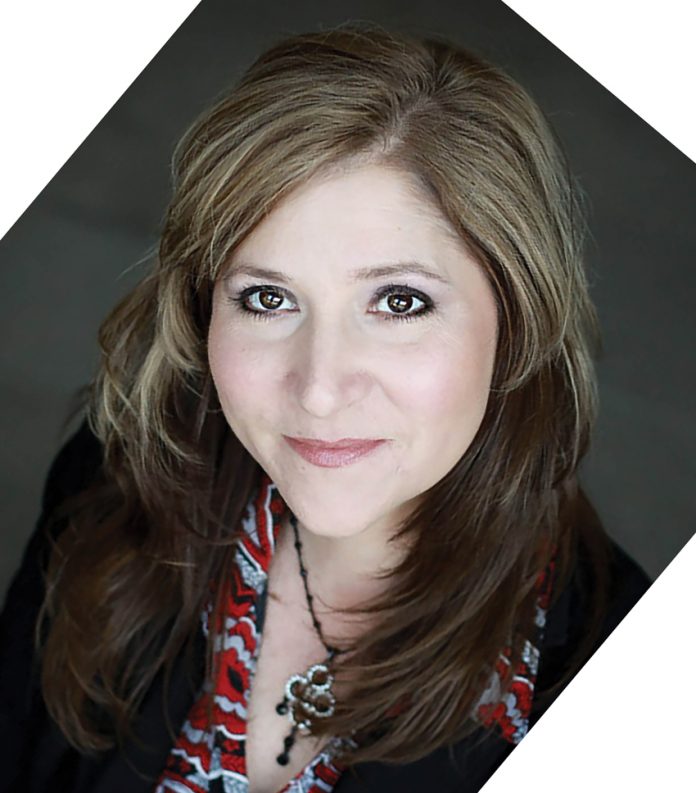
story and photos by Traci Chapman
Hospice is one of the most misunderstood areas of medical and nursing care, Dana Kinder says — and it’s her job to dispel that misinformation.
“People think hospice is crisis, but it shouldn’t be something seen as crisis mode,” Kinder said. “I work to make sure people know exactly what hospice is and how much it can do for both patients and their families.”
Kinder has seen the challenges faced by both patients and their families and the hospice industry itself during her time as community relations director for Oklahoma Hospice Care. She works to bring them together to help relieve both the physical and emotional pain of end-of-life care, she said.
“It’s my job to educate the community — I speak to senior centers, long-term care facilities, independent living facilities and doctor’s office, as well as working with the Ministerial Alliance,” Kinder said.
Hospice’s roots contribute to some of the misconceptions about that treatment area. Hospice benefits in 1983 were added to Medicare, at that time only for cancer patients. Kinder said she has found many patients who believed that was still the case today.
“Now there are over 10 diagnoses you can have to qualify for hospice,” she said.
The illnesses include heart failure, chronic lung and kidney disease, stroke, AIDS, neurological conditions, end-stage Alzheimer’s and more, according to the Center for Disease Control. To qualify for hospice care, a patient’s physician must certify that individual is suffering from a terminal condition and has six months to live or less and the patient must accept palliative care, rather than pursuing possible treatments to cure that illness, such as chemotherapy.
Oklahoma Hospice Care’s team works beyond strict medical care, Kinder said. Its team includes nurse case managers, home health aides, social workers and chaplains and spiritual counselors, who work under the guidance of the hospice medical director.
“We also have trained volunteers, who help with things like household errands and just as companionship for patients and as a sounding board for family members,” she said.
That kind of care not only helps the patient and their family through an incredibly difficult time — it can also give them a little more time together, something that later “can be a blessing for those who have lost a loved one,” Kinder said.
“People who use hospice have an average of 29 days longer than if they hadn’t gone into it,” she said. “This is not the kind of care where someone is just waiting for a patient to die; it’s a very proactive process that makes that time quality time, as well.”
Kinder took a roundabout path to what she calls her destiny. The oldest grandchild on both sides of her family, she lost her grandparents after devastating illnesses, a painful experience that affected the rest of her life, Kinder said.
“After losing them, I didn’t want to be around the elderly because I was so close to them,” she said. “I spent my whole life with them — I chose them rather than my friends a lot of times, and then they were gone.”
As time went by, however, Kinder said she began to see that working with seniors, in helping them find the right care and options for each of them, she was not only honoring her grandparents, but getting an unexpected benefit for herself, as well.
“God has a funny way of helping us heal from our hurts,” she said. “It was that healing process when I saw all these seniors that I could help, not just with hospice-related things, but all kinds of resources.”
That process, helping people who are nearing the end of their lives, became a challenge, giving Kinder a “feeling like you’re putting the pieces of a puzzle together,” but there was even more she didn’t realize she would experience — an education.
“Senior care is a calling — it’s very emotional, but I’m very passionate about it,” Kinder said. “Each of these seniors, they have their stories, they inspire you, they make you a better person.”
“As I’ve learned and grown because of these remarkable people, I’ve come to believe and feel so strongly like it’s everybody’s job to the generation who made this country great.”
“It’s very emotional, but I’m very passionate about it,” she said.
Everyone working at Oklahoma Hospice Care is a family, and each new patient — and their loved ones — become an extension of that, Kinder said. That helps each staff member become a part of that individual’s medical and spiritual care, providing support and guidance through one of the most difficult times of any person’s life, Kinder said.
“To help somebody walk through their journey at the end of their life is an incredible honor,” she said. “They’re more than patients or even friends, they become someone we’ll never, ever forget, and we know that we were part of a network that helped them find strength and comfort and peace.”












